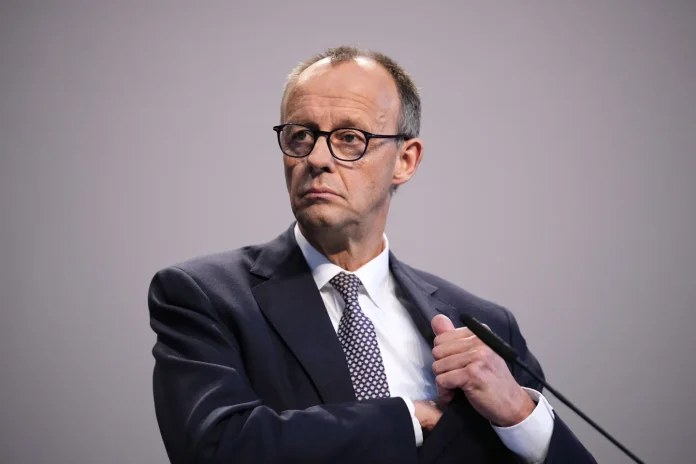Members of Germany’s Social Democratic Party (SPD) began voting on Tuesday on a coalition agreement with the conservative Christian Democrats (CDU/CSU), a crucial step towards forming a new government.
Some 358,000 SPD members are eligible to participate in the vote, which will run until April 29, with results expected on April 30. Party members can cast their vote online or in person at SPD offices across Germany.
SPD co-chair Lars Klingbeil urged party members to support the coalition agreement, saying, “I want us to determine the future of this country,” despite opposition from the party’s left wing and youth organisation.
“If the coalition agreement does not receive the approval of SPD members, we will either face new elections or a minority government,” Klingbeil warned. He also added that such an outcome could strengthen factions within the Christian Democrats that favour co-operation with the AfD.
Youth against coalition agreement
Earlier this week, the SPD’s youth organisation Jusos opposed the coalition agreement, demanding a review of provisions on migration and social policy. “We will vote against the agreement. Clear improvements are needed to approve it,” Jusos leader Philipp Türmer told news channel n-tv on Monday.
The party’s youth wing is pushing for a return to genuine social democratic values, which they believe have been lost.
Nina Gaedicke, leader of Jusos’ largest regional branch in North Rhine-Westphalia, made her position clear in a recent interview: the current coalition arrangements contradict the progressive values of social justice that have historically characterised the party. This view is echoed by Ronja Laemmerhirt from Lower Saxony, who called certain provisions of the agreement “deal-breakers” – a succinct formulation that reflects the depth of the disagreement.
The situation has become particularly acute in Berlin, where there is growing confidence that the party’s youth wing will massively reject the proposed version in the upcoming vote.
The coalition agreement must be approved by a majority of SPD members – with at least 20 per cent participating – in accordance with the party’s internal voting rules.
On April 9, Germany announced the formation of a coalition in the Bundestag. The leaders of the three parties held a press conference in Berlin and presented the coalition agreement under the title “Responsibility for Germany.”
Key challenges for the new government
The new German government coalition of the CDU/CSU and SPD bloc in its agreement paid much attention to the problems of illegal migration to the territory of Germany. In particular, it is planned to abolish the right to accelerated citizenship after three years of residence in the country. In addition, Germany will stop all federal refugee reception programmes and will not create new programmes.
Chancellor-designate Friedrich Merz’s (CDU) will vote on the agreement at a small party conference on April 28 and is expected to approve it. The CSU, Bavaria’s sister party, already approved the agreement last week. If all three parties approve the agreement, the German parliament could elect Friedrich Merz as chancellor as early as May 6, succeeding Olaf Scholz.
